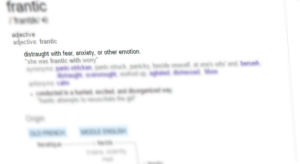I attended a curriculum meeting at my children’s primary school recently. It was presented be a couple of school leaders and it soon became clear that the new (2014) National Curriculum had made them frantic.
The frantic was subtle at first. Just undertones of frantic like an out-of-tune bassoon at the back of an orchestra. Little dissatisfied notes like ‘I don’t know why they put that statement in there…’ and the like.
By the end of the meeting, the whole wind section was off with comments like ‘Gove didn’t know what he was doing’ and ‘ this bit is just too hard.’
Personlly, I quite like the 2014 curriculum. I included it in 4 posts I wrote some time ago about the broad and balanced curriculum I think school should follow. At the time I categorised these into 4 strands:
- The Standards Curriculum
- The Preparation Curriculum
- The Education-for-Education’s-Sake Curriculum
- The Coverage Curriculum (which is the National Curriculum)
But I was clear then, and I’m still clear now that the National Curriculum is not the only determiner of what should be taught in schools. Education is broader than that.
And I think that part of the growing sense of frantic in UK education is because teachers can’t see past the National Curriculum. This is certainly true of what I heard at the meeting at my children’s school.
Aside from the fact that most people don’t like change, so change in itself can be a frantic event, there is the issue that some parts of the curriculum are genuinely harder.
This means if you’ve been teaching in one year group for a while and it happens to be a year group with some significant changes, the likelihood is that you’ll need to look at your subject knowledge. This is fine, if schools recognise the need and calmly set about training teachers in the right areas. But I can see that where schools don’t put time and energy into developing the subject knowledge of their staff, then the curriculum will be just one more thing tipping teachers over the edge.



